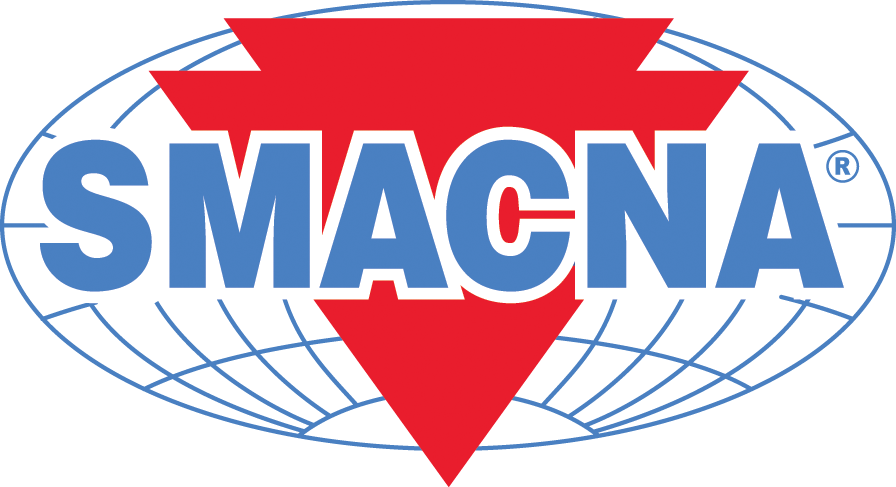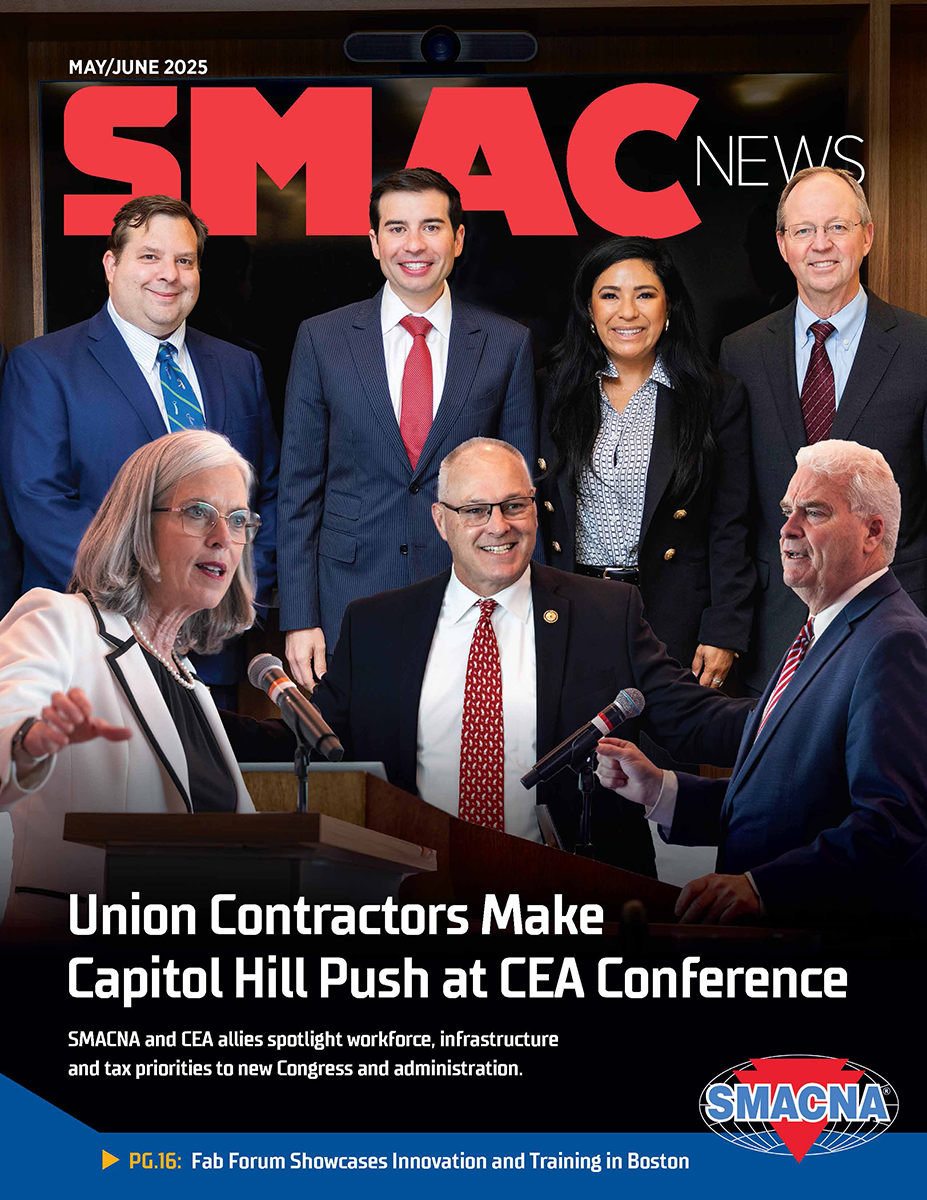CAPITOL HILL UPDATE: HVAC Tax Credits on the Chopping Block in House GOP Tax Plan
In May, House Republicans unveiled their much-anticipated tax package, and the news was not great for HVAC tax credits. The 389-page bill included the repeal of two major HVAC tax credits that address residential energy efficiency improvements.
 This includes the Section 25C tax credit for HVAC systems, also known as the Energy Efficient Home Improvement credit.
This includes the Section 25C tax credit for HVAC systems, also known as the Energy Efficient Home Improvement credit.
While this was first introduced in the Energy Policy Act of 2005, it was significantly expanded on Jan. 1, 2023, following the passage of the Inflation Reduction Act. This expansion provided homeowners with a tax credit of up to $3,200 per year (30% of the cost of qualified improvements) for items such as heat pumps, home energy audits and air sealing and insulation.
The proposal would repeal the tax credit at the end of 2025. It has been scheduled to run through 2032. More than 2.3 million American households took advantage of the 25C homeowner efficiency improvement credit in 2023, taking an average credit of nearly $900.
Also affected would be the Residential Clean Energy Credit (25D) — a federal incentive to encourage homeowners to invest in renewable energy systems, including geothermal. The credit is equal to 30% of the total cost (including labor and installation) for eligible systems installed between 2022 and 2032. The 25D credit has no annual or lifetime dollar limit.
“Tax credits for geothermal heating and cooling systems have historically enjoyed strong bipartisan support that existed long before the Inflation Reduction Act,” said Ryan Dougherty, executive director, Geothermal Exchange Organization (GEO).
This is not the first time these tax credits have gone away for the geothermal industry since their inception in 2006. In 2017, a clerical error left geothermal out of a renewable tax credit. Geothermal technology was not eligible for the tax credits that year, while solar and wind were. As a result, in 2017, geothermal sales dropped by 50%.
“We cannot let that happen again, and GeoExchange will be working around the clock to see residential credits restored in the final package,” Dougherty said. “It is important that Congress recognizes the relatively low cost of geothermal credits is far outweighed by the return on that investment. Geothermal systems lower consumer energy expenses, foster domestic manufacturing and workforce, and strengthen our nation’s electric grid. If we are serious about energy dominance, Congress must support the geothermal industry.”
In 2023, 1.2 million American families took advantage of the residential clean energy tax credit.
“Without this tax credit, the upfront cost of geothermal systems would become less competitive, likely resulting in reduced installations, job losses and a slowdown in the industry’s momentum toward broader clean energy adoption,” said Joe Parsons, senior marketing sustainability manager of Climate Control Group. “U.S. manufacturers of geothermal heat pumps and drilling equipment, loop installers, and HVAC distributors and contractors who have invested heavily to meet the surge in consumer demand since the credits were implemented in September 2022 now face instability and market disruption, undermining the confidence that federal incentives had helped establish.”
The U.S. Green Building Council (USGBC) is calling on Congress to reject proposed budget reconciliation legislation that would repeal critical federal tax incentives and other initiatives that promote energy affordability, grid reliability and job creation.
“A vote to repeal these tax incentives is a vote to raise energy costs for millions of American households and businesses while discouraging billions of dollars of investment in the construction and real estate sectors,” said Elizabeth Beardsley, senior policy counsel at the USGBC. “Businesses need certainty to invest and grow. If these drastic changes are enacted, projects will be canceled. Investment will slow. And the people who will lose out the most are workers in the building trades.”
Stan Kolbe, SMACNA’s executive director for government and political affairs commented to media and Capitol Hill staff and Members of Congress after the House bill was drafted, “While there is much our firms and industry endorses in the H.R. 1 as passed by the House, we regret the House version included termination at year-end of the highly popular and valued IRA residential market tax credits (25C,25D,45L) and programs necessary to boost the important consumer-oriented contractor and HVAC equipment retrofit markets. Without fail, our residential market members have indicated their strong support for the 25C Energy-Efficient Home Improvement Credit and many of the incentives stimulating consumer upgrades and appliance sales for industry allies.” Further, after extensive discussions in May and June we are encouraged that a solid coalition of nearly two dozen House Republicans recently signed a letter supporting 25C and our contractors will stay on top of communicating to Congress supporting 25C, 45L, and 25D and the IRA related commercial and industrial incentives moving the market in a time of growing tariff and project pauses creating anxiety in the industry client base.”
After reviewing the House passed business section of the reconciliation package our position remains supportive of the key business provisions contained in H.R. 1: We believe the vast majority of the essential Tax Cut and Jobs Act (TCJA) incentive provisions remain intact to sustain the construction economy. However, we believe more work must be done by the Senate to improve H.R. 1 tax package. At a time when our nation’s CHIPS and IRA - related manufacturing construction market is still expanding and our firms are completing the largest projects in the nation, we urge your improvements to the energy and efficient manufacturing and construction provisions, many included in legislation passed months ago by the House with overwhelming bipartisan support.
SMACNA contractors and their customers can send letters to Congress supporting 25C, 45L and 25D at https://tinyurl.com/SMACNATakeAction.
Published: July 9, 2025
IN THIS ISSUE
A “Good Catch” for Safety
icon Mechanical’s proactive safety approach earns SMACNA’s 2024 Safety Innovation Award.
ARCHITECTURAL: Detroit Firm Rebuilds Historic Tower’s Copper Crown
CASS Sheet Metal battles wind, weather and tricky scaffolding to restore the iconic Detroit Towers.
CAPITOL HILL UPDATE: HVAC Tax Credits on the Chopping Block in House GOP Tax Plan
In May, House Republicans unveiled their much-anticipated tax package, and the news was not great for HVAC tax credits. The 389-page bill included the repeal of two major HVAC tax credits that address residential energy efficiency improvements.
Fab Forum Showcases Innovation and Training in Boston
Sheet metal leaders gather for hands-on learning and facility tours.
Financial Resilience: Strengthen Your Scenario Planning in 2025
Halfway through 2025, and from where we all stand, contractors’ continued challenges may seem unpredictable. Material costs have fluctuated due to regulatory changes and supply chain disruptions.
HVAC: Modern Niagara Bets Big on Ottawa’s Hard Rock Casino Revamp
In a landmark project, Modern Niagara is spearheading the transformation of an aging casino in Ottawa into a cutting-edge Hard Rock Hotel & Casino.
INDUSTRIAL: How to Navigate Explosive Growth
Allied Mechanical balances industrial megaprojects with customer loyalty and long-term strategy.
Innovating, Educating and Connecting For a Stronger Future
During my travels, I emphasize to all our members: SMACNA is your association. SMACNA exists solely to promote the interests of our members and the union sheet metal/HVAC industry.
NLRB In Limbo Following the Unprecedented Removal of Member Gwynne Wilcox
In early 2025, President Trump removed Gwynne Wilcox, a Democratic appointee to the National Labor Relations Board (NLRB), despite the fact that her five-year term did not expire until 2028.
RESIDENTIAL: Flourishing in the Residential Market
Metro Air increases its residential customer base by focusing on customer service, continued employee education and cost control.
Safety First, Profits Follow
How prioritizing safety builds a more profitable and sustainable business.
Strengthening SMACNA: Engaged Members, Stronger Connections
Entering my fourth year as CEO, I have moments when I can reflect on what it means to be a part of SMACNA.
Union Contractors Make Capitol Hill Push at CEA Conference
SMACNA and CEA allies spotlight workforce, infrastructure and tax priorities to new Congress and administration
Welcome New SMACNA Members


